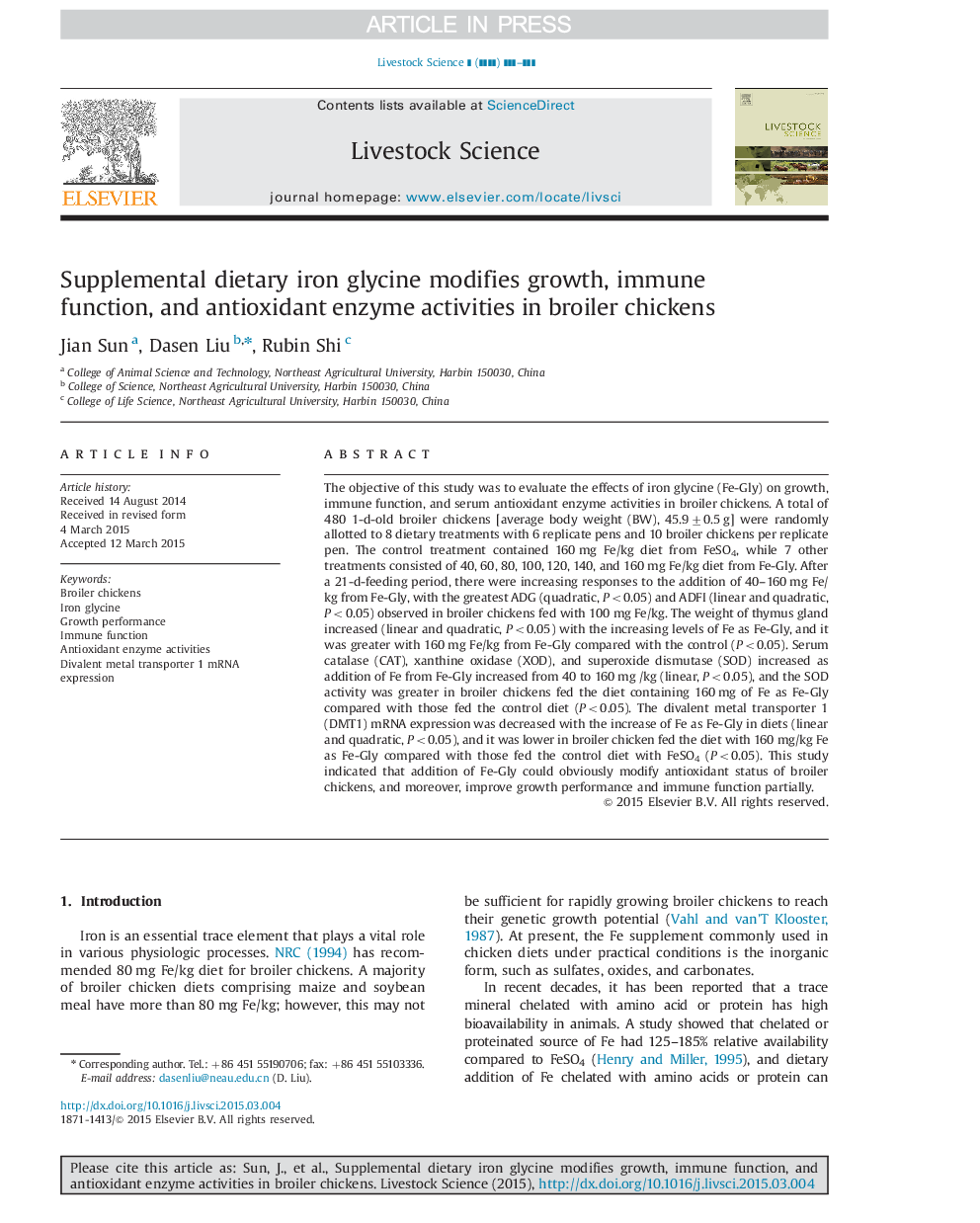| Article ID | Journal | Published Year | Pages | File Type |
|---|---|---|---|---|
| 5790033 | Livestock Science | 2015 | 6 Pages |
Abstract
The objective of this study was to evaluate the effects of iron glycine (Fe-Gly) on growth, immune function, and serum antioxidant enzyme activities in broiler chickens. A total of 480 1-d-old broiler chickens [average body weight (BW), 45.9±0.5 g] were randomly allotted to 8 dietary treatments with 6 replicate pens and 10 broiler chickens per replicate pen. The control treatment contained 160 mg Fe/kg diet from FeSO4, while 7 other treatments consisted of 40, 60, 80, 100, 120, 140, and 160 mg Fe/kg diet from Fe-Gly. After a 21-d-feeding period, there were increasing responses to the addition of 40-160 mg Fe/kg from Fe-Gly, with the greatest ADG (quadratic, P<0.05) and ADFI (linear and quadratic, P<0.05) observed in broiler chickens fed with 100 mg Fe/kg. The weight of thymus gland increased (linear and quadratic, P<0.05) with the increasing levels of Fe as Fe-Gly, and it was greater with 160 mg Fe/kg from Fe-Gly compared with the control (P<0.05). Serum catalase (CAT), xanthine oxidase (XOD), and superoxide dismutase (SOD) increased as addition of Fe from Fe-Gly increased from 40 to 160 mg /kg (linear, P<0.05), and the SOD activity was greater in broiler chickens fed the diet containing 160 mg of Fe as Fe-Gly compared with those fed the control diet (P<0.05). The divalent metal transporter 1 (DMT1) mRNA expression was decreased with the increase of Fe as Fe-Gly in diets (linear and quadratic, P<0.05), and it was lower in broiler chicken fed the diet with 160 mg/kg Fe as Fe-Gly compared with those fed the control diet with FeSO4 (P<0.05). This study indicated that addition of Fe-Gly could obviously modify antioxidant status of broiler chickens, and moreover, improve growth performance and immune function partially.
Related Topics
Life Sciences
Agricultural and Biological Sciences
Animal Science and Zoology
Authors
Jian Sun, Dasen Liu, Rubin Shi,
